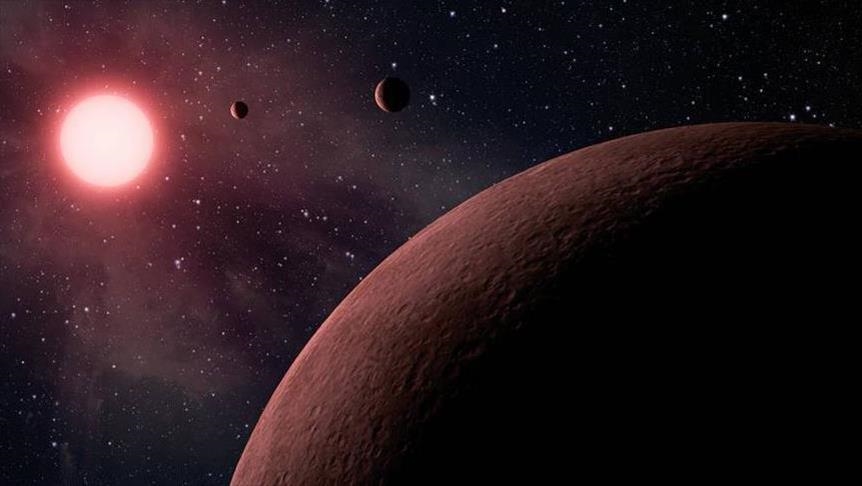NASA's James Webb Space Telescope detects evidence of life on distant planet
'This is the strongest evidence yet there is possibly life out there,' but more data needed to confirm results, says Cambridge University professor
 File Photo
File Photo
HOUSTON, United States
NASA's James Webb Space Telescope (JWST) has detected evidence of life on a planet trillions of miles from Earth, according to a report released Wednesday by a Cambridge University research team studying the data.
Prof. Nikku Madhusudhan from Cambridge University's Institute of Astronomy said his team of scientists studying the atmosphere of a planet known as K2-18b has detected signs of molecules which on Earth are only produced by simple organisms.
While the results are promising, the professor stressed that more data is still needed to confirm the findings, which were published in The Astrophysical Journal Letters.
"This is the strongest evidence yet there is possibly life out there," said Madhusudhan in an interview with BBC News. "I can realistically say that we can confirm this signal within one to two years."
Scientists said that K2-18b is two and a half times the size of Earth and is 700 trillion miles away. Despite that massive distance, researchers explained that the James Webb Space Telescope is so powerful that it can analyze the chemical composition of the planet's atmosphere from the light that passes through from the small red Sun it orbits.
"The amount we estimate of this gas in the atmosphere is thousands of times higher than what we have on Earth," said Madhusudhan. "So if the association with life is real, then this planet will be teeming with life."
The Cambridge University research team found that the atmosphere on K2-18b appears to contain the chemical signature of at least one of two molecules that are associated with life on Earth that are produced by marine phytoplankton and bacteria.
"If we confirm that there is life on K2-18b, it should basically confirm that life is very common in the galaxy," said Madhusudhan, admitting there are a lot of "ifs" and "buts" at this stage of the research.
According to the scientific community, researchers need to be about 99.99999% sure that their results are correct -- and not a fluke reading -- when being held to the standard required to claim a discovery.
The latest results from JWST are only 99.7%, which may sound like a big number to the public but is not enough to convince the scientific community. However, compared to the data obtained by the research team 18 months ago, which had a result of 68%, the new findings are extremely encouraging.
Even if the Cambridge University group obtains the magic number to officially claim a discovery of life elsewhere in the universe, that alone will not be conclusive proof that life exists on planet K2-18b, according to Prof. Catherine Heymans of Edinburgh University and Scotland's Astronomer Royal, who is not associated with the Cambridge research.
"Even with that certainty, there is still the question of what is the origin of this gas," Heymans told BBC News.
"On Earth, it is produced by microorganisms in the ocean. But even with perfect data, we can't say for sure that this is of a biological origin on an alien world because loads of strange things happen in the universe and we don't know what other geological activity could be happening on this planet that might produce the molecules," she added.
The Cambridge University research team acknowledged that there is still a huge scientific mountain to climb in order to answer one of the biggest questions in science but believe they are on the right track.
"Decades from now, we may look back at this point in time and recognize it was when the living universe came within reach," said Madhusudhan.
"This could be the tipping point, where suddenly the fundamental question of whether we're alone in the universe is one we're capable of answering."








